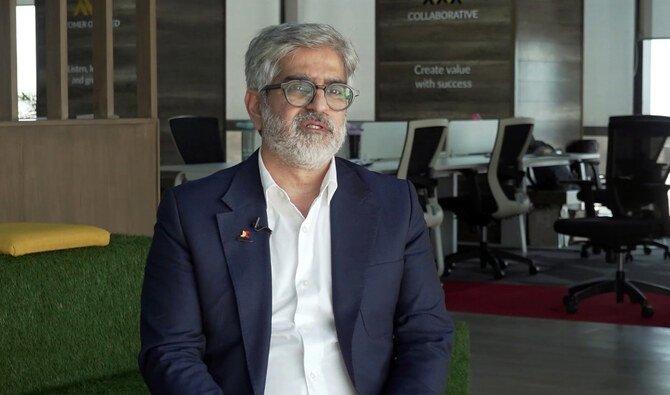KARACHI: The blockade of social media platforms and intermittent Internet shutdowns in Pakistan were causing losses running into “hundreds of millions of dollars” to the telecommunications sector and others that relied on online connectivity to run businesses, the CEO of Pakistan’s largest telecom company said this month.
Pakistan suffered a total $1.62 billion losses due to Internet outages and social media shutdowns in 2024, according to a report by global Internet monitor Top10VPN.com, surpassing losses in war-torn countries like Sudan and Myanmar. The report, released on Jan. 2, said Pakistan experienced 9,735 hours of Internet disruptions that affected 82.9 million users last year, with elections and protests cited as the primary causes.
In an interview with Arab News, Aamir Ibrahim, the CEO of Jazz, Pakistan’s leading digital service provider with around 71 million subscribers, said telecommunications had developed into a cross-sector enabler, so when Internet services were interrupted, it was not telcos alone that lost revenue.
“About 70% of the revenue that we generate comes from Internet or data services, so, there is a consequential revenue impact for us as telcos [telecommunication companies] but the real damage actually comes in terms of customer convenience,” Ibrahim told Arab News when asked about the effect of Internet closures.
“So it’s not just that the telcos lose revenue, it’s every other business that relies on the Internet, whether it’s freelancers, whether it is Careem or cab-hailing [services], or whether it is somebody like FoodPanda, or mobile banking, all of them rely on the Internet to be able to offer services to their customers.
“That is the real cost to the economy and that runs in hundreds of millions of dollars with all these Internet shutdowns.”

Aamir Ibrahim, the CEO of Jazz, Pakistan’s largest telecom company, speaks during an interview with Arab News in Karachi on February 14, 2025. (AN photo)
Pakistan, a country of over 240 million, has witnessed up to 40% drop in Internet speeds in the last few months, according to the Wireless and Internet Service Providers Association of Pakistan (WISPAP). The speed drop comes amid what activities and opposition parties widely describe as a state-led digital crackdown that has included a ban on X, the imposition of a national firewall and attempts to restrict VPN use.
The government denies any of the moves are aimed at censorship but rather at protecting national interests and going after terrorists and others who spread misinformation or incite violence online.
Ibrahim acknowledged that the government had to maintain “a hard balancing act.”
“We have to be cognizant of the fact that there is a lot of fake information, a lot of fake news, things that can be detrimental to the interests of the country and even consumers and citizens and for that, you need a policy framework,” the Jazz CEO said.
He urged the government to come up with a “mechanism” to tackle “deliberate vilification or other institution-damaging narratives” spread online.
“So from a digital operator company perspective, we certainly advocate unrestricted Internet but the government has to actually balance it with the security concerns and concerns where information can become detrimental to national causes.”



























